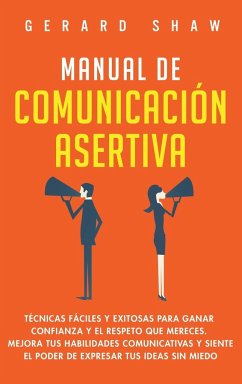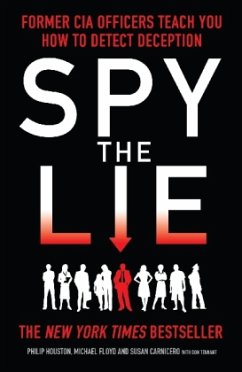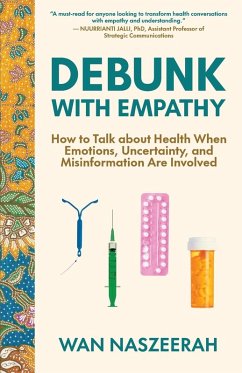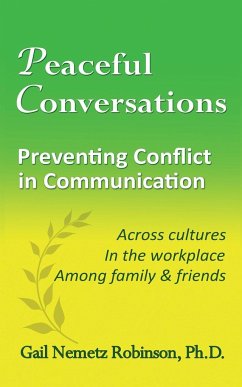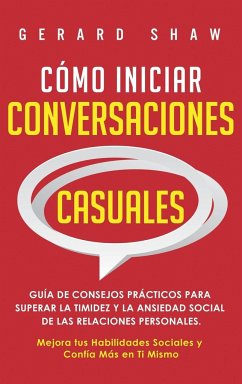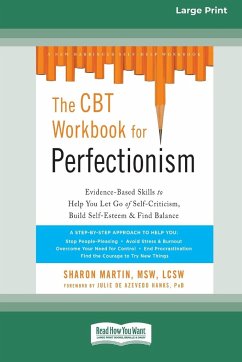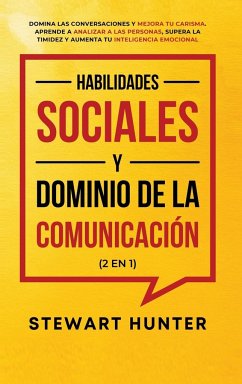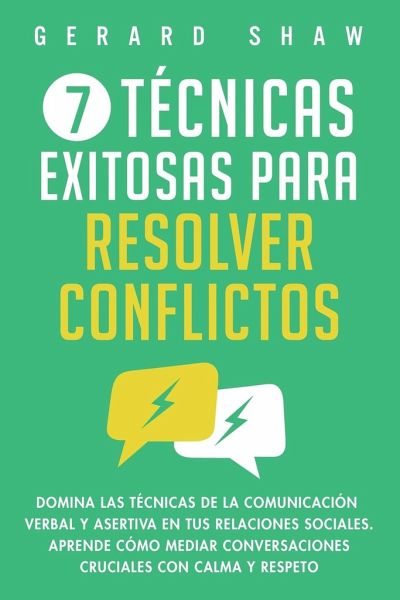
7 técnicas exitosas para resolver conflictos
Domina las técnicas de la comunicación verbal y asertiva en tus relaciones sociales. Aprende cómo mediar conversaciones cruciales con calma y respeto

PAYBACK Punkte
7 °P sammeln!
¡Conviértete en un experto en resolver conflictos a través de métodos verbales y no violentos! ¿Alguna vez has estado tan enojado con alguien que le gritaste en su cara cosas terribles, solo para lastimarlo? ¿O te lo han hecho a ti? ¿Te encontraste en una situación en la que no sabes cómo responder a alguien que te grita y lanza acusaciones falsas? ¿Alguna vez te sentiste mal durante días después de un conflicto, preocupado por haber dañado tu relación con esa persona? Si te hace sentir mejor, todos hemos pasado por lo menos por alguna de estas situaciones. A lo largo de nuestras...
¡Conviértete en un experto en resolver conflictos a través de métodos verbales y no violentos! ¿Alguna vez has estado tan enojado con alguien que le gritaste en su cara cosas terribles, solo para lastimarlo? ¿O te lo han hecho a ti? ¿Te encontraste en una situación en la que no sabes cómo responder a alguien que te grita y lanza acusaciones falsas? ¿Alguna vez te sentiste mal durante días después de un conflicto, preocupado por haber dañado tu relación con esa persona? Si te hace sentir mejor, todos hemos pasado por lo menos por alguna de estas situaciones. A lo largo de nuestras vidas, entramos en numerosos conflictos con nuestros familiares, amigos y compañeros de trabajo. A menudo nos sentimos agotados, cansados e incluso deprimidos. Puede sonar extraño pero los conflictos son eventos normales y comunes. Incluso si no eres el tipo de persona que a menudo se involucra en un conflicto, simplemente no puedes evitar que alguna vez suceda. Sin embargo, no todos los conflictos son iguales. Todos debemos aspirar a resolver nuestros conflictos de manera verbal y no violenta. Incluso hay métodos y técnicas para usar el conflicto en nuestro crecimiento personal y el desarrollo de nuestra inteligencia emocional. Decimos cosas malas cuando estamos enojados, especialmente si sentimos tener la razón acerca de cierto punto o si, en general, tenemos un carácter obstinado. A veces incluso decimos cosas que no queremos decir, solo para arrepentirnos más tarde, cuando la persona con la que estamos discutiendo se siente realmente herida. Esta guía te ayudará a controlar tus emociones, controlar tus reacciones impulsivas y enseñarte cómo resolver conflictos de manera tranquila y pacífica, ya sea en el lugar de trabajo, en el matrimonio o con familiares y amigos. Lo que podrás hacer después de leer este libro: Ser capaz de comprender de dónde viene el conflicto. Reconocer los diferentes tipos de conflicto y tratarlos en consecuencia. Evitar las formas poco saludables de lidiar con los conflictos. Reconocer las diferentes etapas del conflicto y tu propio estado emocional. Construir relaciones más fuertes basadas en la confianza y el respeto. Utilizar la empatía para comprender las emociones de los demás y actuar con compasión. Dominar la técnica de comunicación verbal para resolver conflictos. Usar tu lenguaje corporal para enfatizar tu comunicación verbal. Controlar cómo reaccionas ante ciertos factores desencadenantes y evitar los arrebatos emocionales. Desarrollar tu inteligencia emocional. Lograr paz y armonía en tus relaciones y lugar de trabajo. Los humanos tendemos a acumular los problemas sin resolver y reprimir nuestras emociones, porque sentimos que esto ayudará a resolver un conflicto de manera pacífica. Si alguna vez has hecho esto, necesitas este libro que te muestre cuánto daño te estás haciendo involuntariamente a ti mismo y a las personas que te importan. ¿Desea construir relaciones fuertes y saludables, resolver conflictos de manera constructiva y pacífica y armonizar tu vida profesional y personal? ¡Desplázate hacia arriba y haz clic en 'Comprar ahora'!



